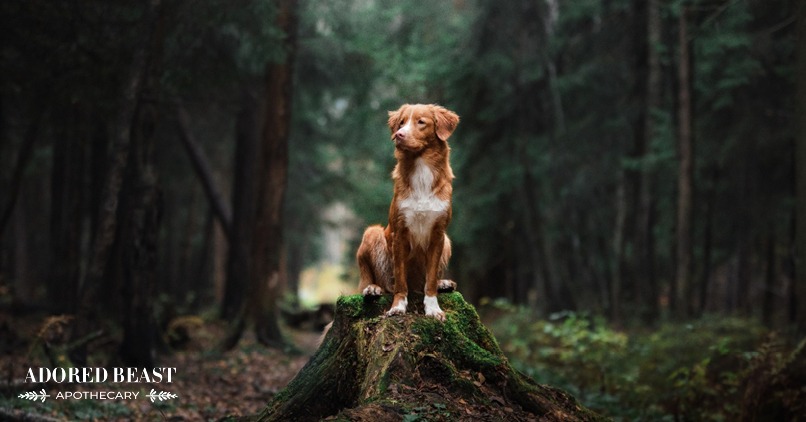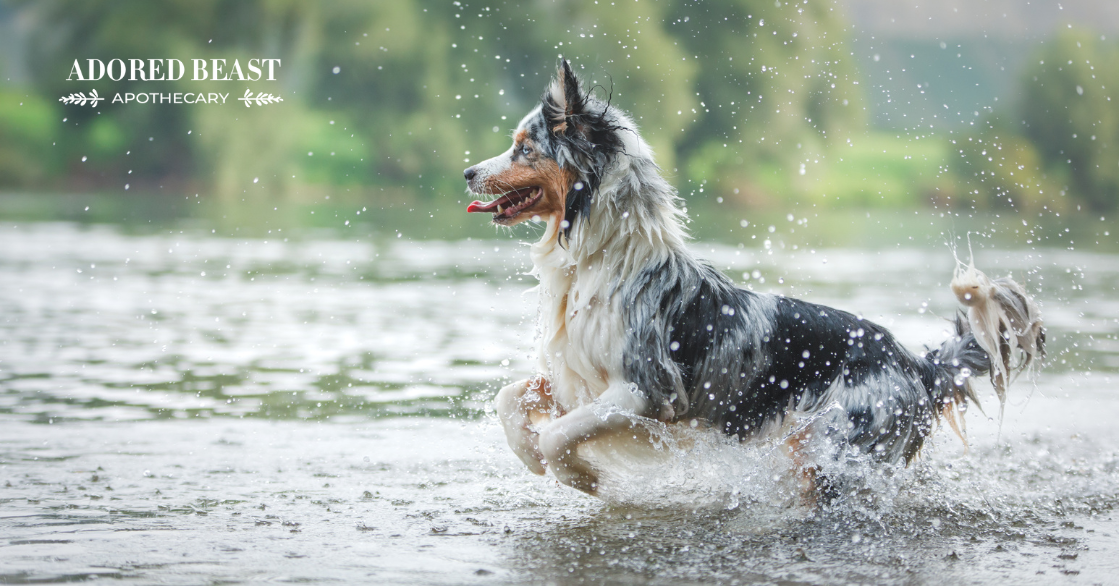We love a good hike in the forest. Taking in the sights and sounds and smells around us. Feeling the sun shine through the branches above… And our dogs probably love it even more than we do.
What we don’t love are ticks. Depending on where you live, ticks might be a big problem or a tiny one, but a tick check is always a good idea after a nice romp in the woods.
So, how do you remove a tick on a dog, and why is it important?
Why Ticks Tick Us Off
Ticks are nasty. Not only are they totally gross, they can carry disease.
These are the most common tick-borne diseases, and the different ticks that spread them:
- Lyme Disease (Borrelia burgorfei) – spread by the deer tick or blacklegged tick
- Erlichiosis (Erlichiosis canis) – spread by the lone star tick
- Rocky Mountain Spotted Fever (Rickettsia rickettsii) – spread by the American dog tick, Rocky Mountain wood tick, and the brown dog tick
- Anaplasmosis (Anaplasma phagocytophilium orAnaplasma platyu) – spread by the deer tick or blacklegged tick
- Babesiosis (Babesia microti) – spread by the blacklegged tick
Now, before you get stressed, know that not all ticks transmit disease and just because a tick has been found on your dog doesn’t necessarily mean he’s infected with something.
And, the good news is that most tick-borne diseases aren’t transmitted immediately. So, if you remove the tick within the first 24 hours, chances of infection are lower.
So, after each hike, check your dog for ticks and remove them ASAP.
How to Remove a Tick on a Dog
Now, there are a few dos and don’ts when it comes to how to remove a tick on a dog. Myths prevail about alcohol and the like, but there’s a simple way to remove a tick safely.
We like to use tweezers or a tick removal tool like a tick key. These allow you to get right in close and pull the tick straight out.
- With tweezers, get a good grip on the tick as close as you can to the skin. Try not to pull at the engorged body and instead aim for the head. With a tick removal took, slide the opening around the head and get a secure grip, also as close as possible to the skin.
- Gently pull the tweezers upwards with steady hands. Apply pressure until the tick releases. If you’re using a tick removal tool, slide gently along the skin and the tick will detach.
- Give the area a good clean with rubbing alcohol, iodine, or soap and water. And don’t forget to wash your hands too!
Don’t try to:
- Drown it with things like peroxide, nail polish, or smother it with vaseline. This can cause the tick to vomit into your dog, increasing the possibility of infection.
- Burn the tick off. Again, this can cause vomiting and possibly burn your pup!
- Squeeze it or crush it. This can force fluids from the tick into your dog, again, increasing the risk of infection.
Next Steps
Ok, so you’ve removed that nasty pest from your pet. Now what?
This is what Julie uses on her farm after she removes ticks:
- Ledum 200 C
- Arnica 200 C
Give 3-5 pellets 1x/day for 3 days. You can either drop the pellets directly into your dog’s mouth so they melt on the gums, or put them in water. The exact amount isn’t important – as long as some of the remedy gets into your animal, you’re good to go.
You can also up your prevention with this DIY Tick Spray
DIY Tick Spray
Having an oily sheen on their coat slows ticks down as they can’t climb onto the fur as quickly. Spray this mixture all over your pet (avoid the eyes though) before heading out.
- 1 litre spray bottle – filled with water
- Lemon juice – 2 tablespoon
- Sweet almond oil – 1 teaspoon
Follow up with a flea comb when you get home and you’ll have a better chance of catching ticks before they have a chance to embed into the skin.
Also, Julie says, “if you have the space, Guinea hens are an amazing, natural, and super helpful tick mitigator!”
And what about that tick?
- Take it to the vet for testing. If you’re concerned about a tick-borne virus, you can always take the tick to your vet to get tested. Just put it in a container with a lid, or a plastic bag will do fine as well, and drop it off. Many places don’t charge for this service, and if you’re worried, this will give you peace of mind.
- Get rid of it. Not worried about a tick-borne disease in your area? Ticks are resilient, so don’t just toss that sucker in the garbage. He’ll crawl right back out. And water isn’t always going to do the job either. Make sure you’ve killed it and then secure it in something before you put it in the garbage.
Ticks are gross, there’s no denying that, but they don’t have to be scary. Do your tick check and remove those bad boys as soon as possible.












